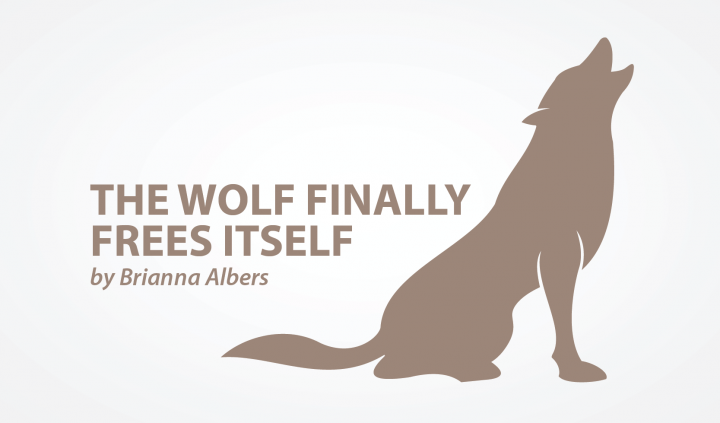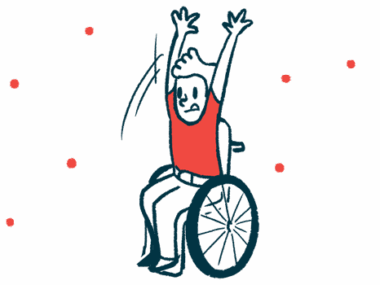I Hate to Admit It, but I Struggle with Codependency
Written by |

You can tell I got my master’s degree in mental health counseling because there are certain things I cannot tolerate.
For example, baffling definitions of codependency. People sling “codependent” around like mud. Google codependency and you’ll get a litany of definitions from a variety of questionable sources. Wikipedia, for example, defines codependency as “a behavioral condition in a relationship where one person enables another person. … Among the core characteristics of codependency is an excessive reliance on other people for approval and a sense of identity.”
Cool. OK. But what does that actually mean?
It never occurred to me to write a column about codependency until I stumbled across this Instagram post. Sasha’s definition of codependency struck me as particularly relevant to people with disabilities.
“I’m not OK unless you’re OK.”
I have struggled with codependency my entire life. I could put on my not-a-therapist hat and explore the source of my codependency — I never thought I would have friends, so I’m desperate to keep the ones I have and will do whatever it takes to make them happy. But it’s more than that. My codependent tendencies have everything to do with my disposition, my situation, and the interplay between the two.
I have an incredible knack for discerning people’s feelings. This is often referred to as empathy, or “the visceral experience of another person’s thoughts or feelings from his or her point of view,” according to Psychology Today. But I’m not just capable of stepping into someone else’s frame of reference. I intuit people’s emotions simply by observing them — body language, tone of voice, word choice, a dozen other personality quirks.
I know. Like you know when a storm is rolling in. The air has a certain quality to it, a density, sharp on the tip of your tongue. Every hair on your body stands on end.
I rely on caregivers for everything. Toileting. Transportation. Last-minute adjustments in bed. It’s a difficult situation to be in, especially when your caregivers are also your parents. Of course they’re willing to help — they’re parents! But they also are human beings with off days and occasional bad attitudes. They have dreams of their own, dreams that were probably put on hold when their child was diagnosed with a degenerative neuromuscular disease.
I hate feeling like I’m a burden. I always have. So I do everything I can to mitigate the load of my care. I time things perfectly. I gauge my parents’ emotions, waiting for them to be in the right mood before I spring a request on them. This is where the “superpower of empathy” comes into play — I’m so attuned to the people I love that I immediately know if something is wrong. Bad day at work? Difficult conversation playing over and over in your mind? Tired? Hungry? I’m right there with you.
My inner dialogue often reflects that Instagram post: “I’m not OK unless you’re OK.” I rely so heavily on other people that my well-being is enmeshed in theirs. I cannot separate the two. And I am so afraid of being a burden that I ignore my own needs to meet the needs of my caregivers. I have no control over my SMA, but I still feel guilt over my disability, and would rather punish myself than recognize that my needs are just as valid as my caregivers’ — and vice versa.
Over the years, I have realized that codependency hurts everyone involved. I deny myself, but I also deny my caregivers. Codependency makes it difficult for caregivers to grieve the life they might’ve had if their child was abled. They can’t feel bad for themselves or have off days. They are, for lack of a better term, handicapped, barred from experiencing the breadth of emotion that accompanies SMA.
You can’t unlearn codependent behaviors overnight. Even if you address codependency in sessions with a counselor, you still will revert to harmful patterns. Your brain is wired. It takes dedication, grit, and a whole lot of heart to recognize the ways in which you’ve been damaging yourself and the people you love. But the work is possible — and worth it.
Follow me on Instagram @briehalbers or subscribe to my newsletter for more mental health content.
***
Note: SMA News Today is strictly a news and information website about the disease. It does not provide medical advice, diagnosis, or treatment. This content is not intended to be a substitute for professional medical advice, diagnosis, or treatment. Always seek the advice of your physician or other qualified health provider with any questions you may have regarding a medical condition. Never disregard professional medical advice or delay in seeking it because of something you have read on this website. The opinions expressed in this column are not those of SMA News Today, or its parent company, Bionews Services, and are intended to spark discussion about issues pertaining to spinal muscular atrophy.




Leave a comment
Fill in the required fields to post. Your email address will not be published.